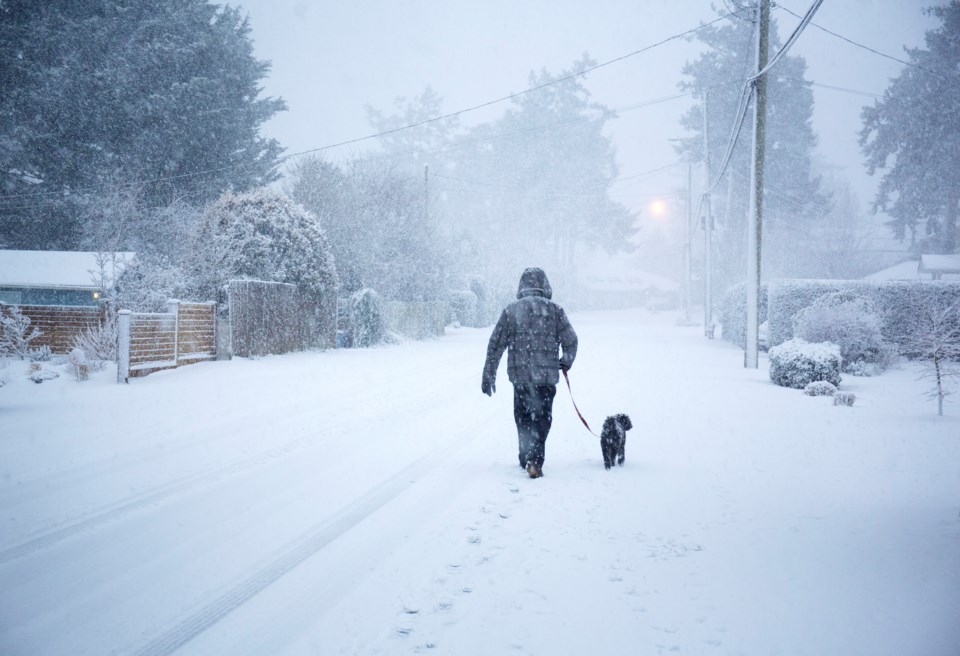The Lower Mainland experienced record-breaking cold, snowfall, and heat in January, followed by early spring snow in March.
But is it possible for the region to see another dusting of the white stuff before the month is over?
Thanks to an unsettled atmosphere, the Metro Vancouver weather forecast has included some below-average temperatures to kick off meteorological spring, which started on March 1.
Temperatures dipped below the freezing mark across the region for several days and felt as cold as -9 C with the wind chill.
But a warm system moving in off the Pacific is expected to mark a shift from the unseasonably cold pattern.
Environment Canada Meteorologist Armel Castellan told V.I.A. that freezing levels may stay a bit lower through the weekend starting on Friday, March 8 as the rain moves into the region. However, warmer temperatures are expected to commence next week by Tuesday or Wednesday.
By Thursday, the region should see a "sharp deviation" to temperatures soaring into the mid to late teens, he said.
Can the Metro Vancouver weather forecast include snow in late March and April?
While it isn't common, snow has occurred in the Lower Mainland in the spring as late as April.
"The latest snowfall was on April 19, 2008," he said, adding that the earliest it has ever snowed was late October.
But the unseasonably late snowfall isn't common; snowfall in the last couple of weeks of March is rare.
Not only is late March snow uncommon, but the national weather forecaster is also calling for above-average temperatures to persist through the end of the month and into April, Castellan explained.
In January, a potent blast of Arctic air produced bone-chilling temperatures that felt as cold as -20 C with windchill. Following this, the region had record-breaking snowfall that slowed traffic to a halt.
It isn't possible to have pure Arctic air in mid to late March but "you can have modified Arctic air," Castellan said.
Blasts of cold air in spring can be dangerous because they can produce snow in the mountains followed by a "big melt" caused by a strong solar output during the day.
B.C.'s depleted snow banks were significantly replenished by abundant alpine snow over the past couple of weeks but there hasn't been any warmth to cause flooding.
Stay up-to-date with hyperlocal forecasts across 50 neighbourhoods in the Lower Mainland with V.I.A.'s Weatherhood.




